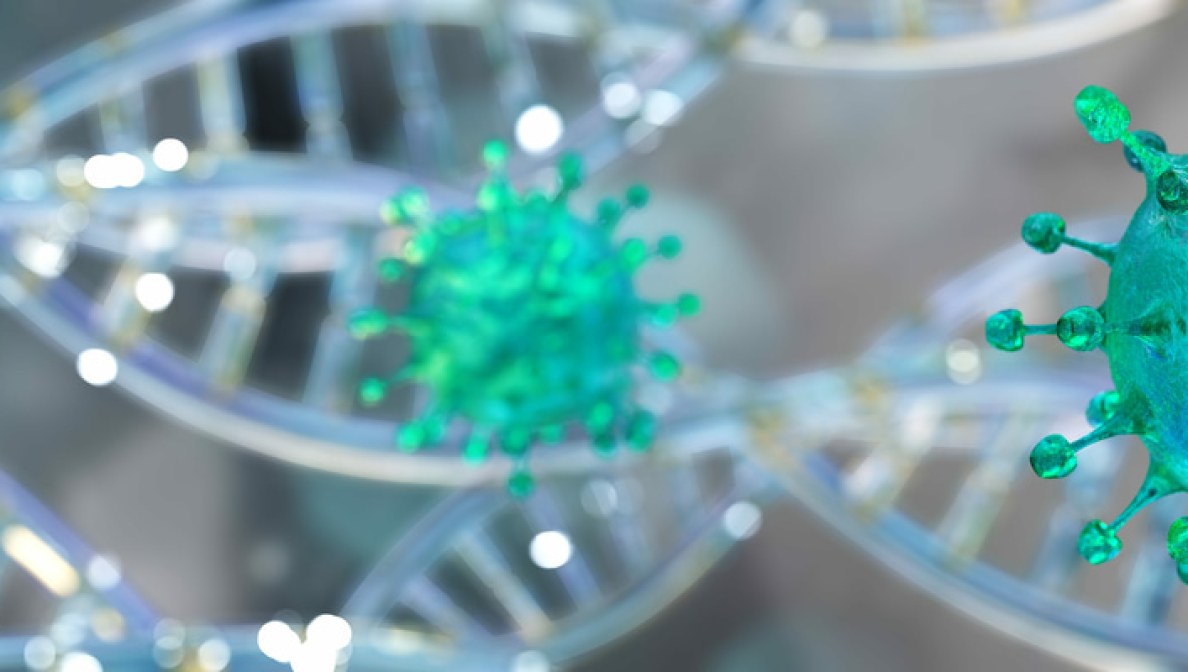Things to know about cancer and the biomarker MSI-H/dMMR
Cancer patients need treatment that is most suitable for their specific disease. Biomarkers, biological characteristics that can be measured in blood or tissue samples, are an aid in finding the right treatment. MSI-h/dMMR is such a biomarker.
19.12.2022

Cancer is more than just one disease. There are many types of cancer and the disease can occur anywhere in the body. It develops when healthy cells grow uncontrolled: they become cancer cells and destroy healthy tissue. Cancer cells can spread, break away from their place of origin, and affect other parts of the body (metastasize). Cancer patients need treatment that is most suitable for their specific disease. Biomarkers, biological characteristics that can be measured in blood or tissue samples, are an aid in finding the right treatment. MSI-h/dMMR is such a biomarker.
Cancer is the second leading cause of death worldwide

43’500
In Switzerland, about 43’500 people are newly diagnosed with cancer each year, about 17’200 die of it, and about 67% still live 5 years after diagnosis.

19’000’000
In 2020, more than 19 million people worldwide were diagnosed with cancer. Nearly 10 million people died of it.
What happens in the body when cancer develops
All cells in our body have certain jobs to do. Normal cells divide in an orderly way. They die when they are worn out or damaged, and new cells take their place. In cancer, cells divide uncontrollably and crowd out the normal cells. This causes discomfort in the part of the body where the cancer started. Cancer cells can also spread to other parts of the body. Most cancers form lumps, which are also called tumors.
How do cancers differ?
Some cancers grow and spread fast. Others grow more slowly. They also respond to treatment in different ways. For example, some types of cancer can be treated well with surgery, while others respond better to drugs like chemotherapy, immunotherapy or a combination of different therapies. Often more than one treatment is used.
The role of biomarkers in cancer treatment
Biomarkers are certain biological characteristics that can be measured in blood or tissue samples. They help to better understand a cancer disease and can provide information for the choice of a treatment option. There are several biomarkers, MSI-H/dMMR is one of them.
- MSI-H is the abbreviation for MicroSatellite Instability High. MSI is a change in short, repeating DNA sequences (microsatellites), that is often found in tumor cells of certain cancers. MSI-H cancer cells cannot correct errors that occur during DNA replication.
- dMMR stands for “deficient mismatch repair”, which means “defective DNA repair system”. Normally, the DNA repair system intervenes when it identifies errors and repairs these cell changes. If this system does not work, it is called a defective DNA repair system (dMMR). A defective dMMR system can lead to microsatellite instability (MSI).
Tumors with high microsatellite instability often respond better to certain therapies. An MSI biomarker test can help to identify patients who may respond to such therapy.
How an MSI-H/dMMR biomarker test works
Every cancer is different. To help develop a treatment plan that is right for a patient, the doctor may order laboratory tests. These tests are used to evaluate the tumor for various biomarkers, including MSI-H/dMMR.
- A tissue sample (biopsy) of the tumor is taken, and the doctor orders the test.
- The doctor typically gets the results in 2 to 10 days.
Doctor and patient discuss treatment options based on the results and decide which treatment seems most appropriate.
CH-NON-00951, 12/2022
